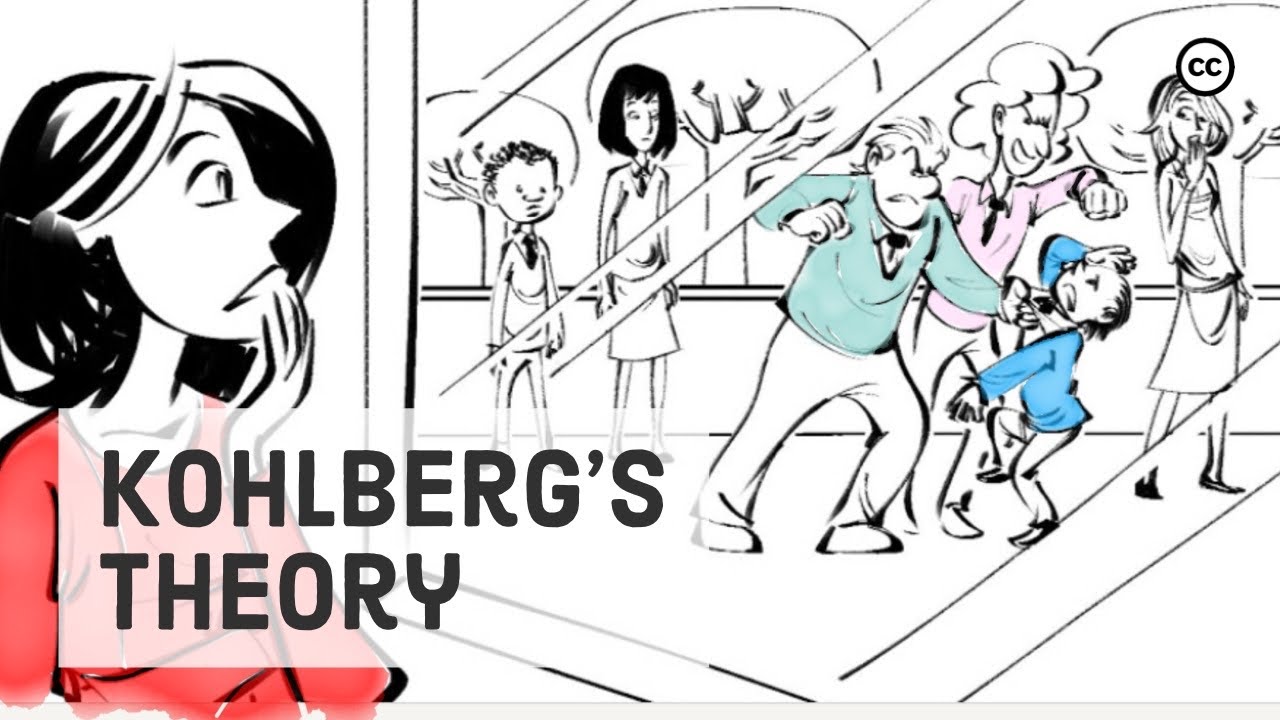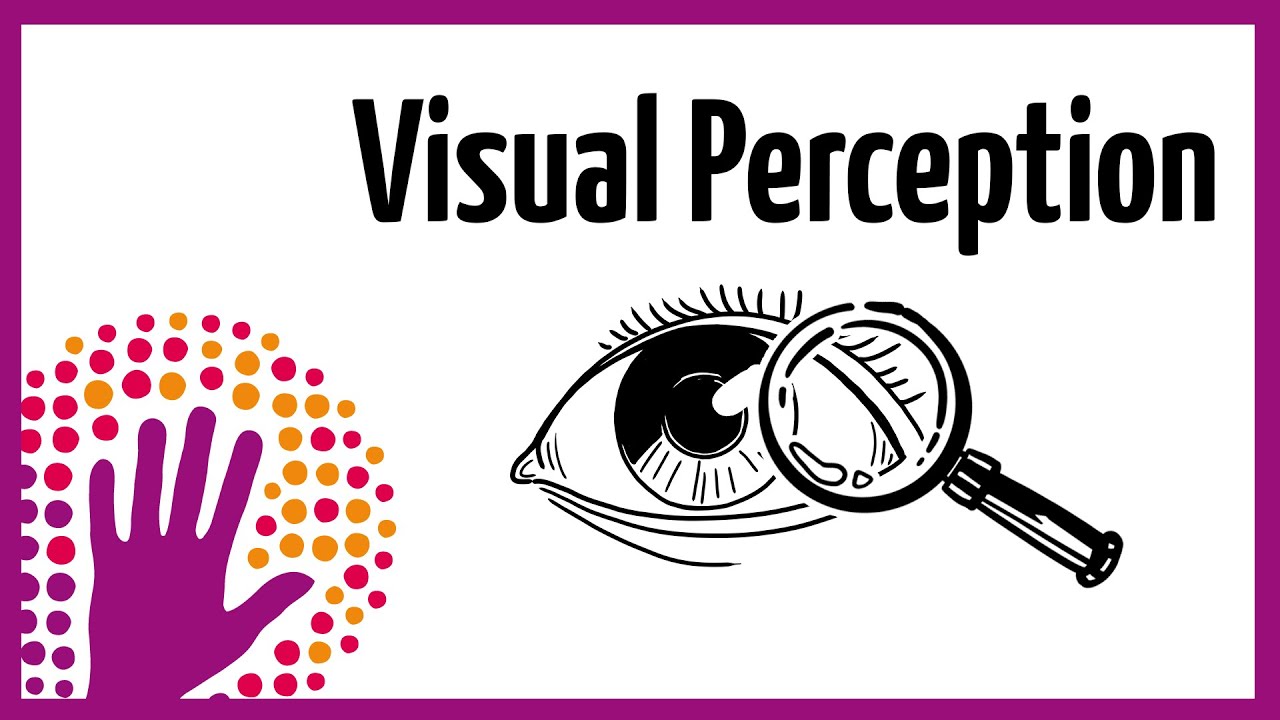Sprouts
Lawrence Kohlberg’s theory claims that our development of moral reasoning happens in six stages: 1. Obedience and Punishment, 2. Self-interest 3. Interpersonal Accord and Conformity 4.Authority and maintaining social order, 5.Social Contract, 6.Universal Ethical principles.
Kohlberg claims that we reach one stage after another showing an ever-deeper understanding of moral questions. The stages themselves are structured in three levels: Pre-Conventional, Conventional and Post-Conventional.
Subscribe to: https://www.youtube.com/channel/UC-RKpEc4eE9PwJaupN91xYQ
A special thank you to our patrons: Avigail, Badrah, Cedric Wang, David Markham, Denis Kraus, Don Bone, Esther Chiang, Eva Marie Koblin, John Zhang, Julien Dumesnil, Mathis Nu, and all the others!!! You keep us going!
If you want to join us, visit http://www.patreon.com/sprouts
Read the entire script here: https://docs.google.com/document/d/1SqhBnPM3m1dwfJJW_xo39H_mmCKERmbuAtXJcayZEVc/edit
Source




I think there is a massive diffrence between morals and laws. I think it was moral of him to save his wifes life, and in a sense take from the wealthy and give to the poor. However it is of course unlawful, so if he goes to jail, i dont think that is a question of morals. I think him stealing is unlawful, and the pharmacists charging outrageous for the drug immoral. So in the long run i guess you have to decide if you value morals, or laws more. Which is, i think, is another test for your moral compass
refuse to fallow unjust rules
Would I say the one who stole the drug was completely wrong? No. Should it change for the person according to the relation he had ? No. Should the druggist go to jail? Not really.
But we are only human so,I believe is that death is inevitable so,if it's someone's time to go we should let them go but obviously our attachment towards them makes it difficult for us to accept that and would probably not care if it were a stranger but at the end we need to accept that it's time for them to go.
I think the person should file (whatever the law of the country complies with) to file an investigation against the medicine that why is it so expensive and how can proper MRP be set on the medicine that is being sold.
I guess it's all easy to say hypothetically but life isn't that easy :/
He should have asked "may rightmed ba nito? May rightmed ba nito? "
Free health care for all! This is a dilemma we shouldn't need to solve.
Thanks for your video…. Great video, great Youtuber. Thanks to hqreps, help me to realize my bag collection goal of this season. So many cheap items and such good quality. Join them and get yours now
Damn, he should've go to rightmed bro, greatmedicine at an affordable price.
Heinz should have contacted police before going back to pharmacist, easier to get a deal in presence of someone with authority. It's still 5x production cost (still a lot considering he had to lend as much money as possible). If this had same outcome i'd at least think he would have some understanding from the court when judging.
Clearly the theft is justified and is the best answer available without escaping the question.
The pharmacist cannot be prosecuted however as his need to make his business function could save many more lives.
POV: you’re watching because you want to understand 💀
POV: Your watching this because of understanding the self subject xD
how about piaget's moral development theory.
Conventional is the worst.
Aren't there laws that punish people performing such a monopoly on a necessity?
At the end of all of this, what about the wife loving the husband enough? If I were to ever be in a situation like that, once you've done everything you can and still can't prevail. Give up, death is a scary thing, but not necessarily bad. Having your own husband steal for you is a romantic and endearing thing to have on paper, but not when after the wife gets healed he may or may not face jail time for that. In the end the wife, having her loving husband in jail because of her would fill her up with guilt. Which more often then not leads someone in the grasps of depression and soon hanging herself.
Once you've reach a fork in the road where everything becomes blurry, people tend to think what will personally benefit them. Stealing the medicine will only benefit the wife for this instance. So what if she were to be understanding of the stress her husband is under to keep her alive and the pharmacist to keep refusing his desperate pleads only disheartening him. Accepting death is a much harmonious way, though it would be the saddest.
This is completely my opinion
Zavallı Heinz in dilemmasi moral değil aslında sosyal, ekonomik bir sorundan kaynaklanıyor. Bunu ahlaki, evrensel bir ikilem diye sunmak ve tarihsel bağlamından çıkartmak yanıltıcı olabilir. Şarlo filmleri bunun gibi ikilemler ve onlara verilen net cevaplarla dolu. Şarlo nün verdiği dersler daha öğretici.
In response to the moral dilema, I do believe that the phamarcy, being in this situation the only ones who can produce this life saving drug, should be punished and directly charged with the death of the woman. Any physician who creates life-saving medical treatments and then charged more than 2-3X production cost on those medications is a discrace to anyone who has taken the Hippocratic oath, to harm no one and to seek to heal others. Obviously, this is no longer this persons main interest, and they are not benefiting society, but rather hindering it by impeding the road to progress and a more harmonious existence.
nah, I'd let my wife die. Death is inevitable.
The scenario at the end: yes he was fine in stealing it, capitalism is the root of all evil.
He should move to Canada and get the medication free.
POV: you watching this video beacuse of ETHICS
Bad examples!
Why are pre, conventional, and post are not on the same level? Like lower to higher and not from left to right. Broadening perspectives. Balancing knowledge from all aspects. Acquiring the best out of all…
Your question itself has the word murder. 🤷♀️
He shouldn't have stolen as his responsibility and love's limit is drawn right there in justice as it is more selfish than when it is a stranger because of sense of belonging. Wife wouldn't want her husband in jail if she was righteous. If he did that for the stranger, he would be accepted as a hero by the society. More possibilities than the former. Only if saving grace worked the wife would live and the husband freed but righteous judgement would punish him a lot lesser within their means. Stealing is sin anyway. The drug guy should be arrested. All pharmaceutical industry should be cleansed like that. No wickedness should reach riches. In all departments. Lol. Empathized way too much.
Should Heinz have stolen the drug? – Absolutely.
Would things be different if he didn’t love his wife? –
For sure, although I think he still would/should steal the drug. The obligation to steal I think would be higher as well since he’d be doing it more out of principle/duty over emotional connect.
Stealing for a stranger? –
I’d think no. We’re assuming Heinz is not inclined to perform criminal activity and as such would have a harder time justifying the stealing vs blaming a system in place that is unfair. Without a direct emotional connection Heinz will blame society and the system vs taking on the emotional burden of having any autonomy in the situation.
Should Heinz be arrested? –
Yes. That’s ultimately the price he is paying for the medicine. Heinz would agree as well. He does not WANT the medicine for free, so to justify his actions he assumes the risk of being arrested as well.
Obviously it is immoral to collect obscene wealth by holding people's lives for ransom. Don't stop at stealing the drug for your wife. Take all of the life saving medication and give it away. Obeying unjust systems for fear of punishment is to be complicit in the injustice.
My question is, why do so many adults get stuck at the law and order stage? What is responsible for the lack of continued cognitive development? Is it truly a lack of capacity? Are people simply cognitively incapable of understanding morality and justice with any nuance and depth? Is this stunted morality more common in certain cultures or societies? Is there a point where the ability to expand moral development diminishes? Is there a point of no return, where no amount of new exposures, differing perspectives, or spiritual guidance can draw a person into a higher realm of moral reasoning?
sometimes it burns when ip
I would say that if the man did not love his wife, he would not have broke in to a drug store. Because he did, it showed how much he loved her, but also because of desperation. What would I do in this situation? That's a hard question, I would say possibly find another pharmacy OR after praying and crying, (and especially if the other person knew they might be dying) , to offer writing their will for them if they haven't done so.
On the last question… Has he tried homeopathy? aromatherapy?…. acupuncture? …. well, actually, they can be sold expensively with thousands of times cost of production, and trustworthy results based on anecdotal evidence.
when your here for school 👁👄👁
👍
The thought experiment at the end had at least two different fallacies that I couldn't walk away without taking a power drill to them… I may (…and did…) think of more as I continue. Suffice it to say, I reject the question given that I probably put more thought into it while writing this comment than the psychologist who came up with it probably did.
1) Drugs being priced at ten times the cost of making them. That is not how pricing works. Not for drugs. Not for any goods. Not for services. Not even for the kid who mows your lawn and / or shovels your driveway. What sets the price for a specific good or service is (or should be) whatever the majority of participants in a free market will sustainably pay. You might pay $20 / month for a smartphone, but it probably cost somewhere in the ballpark of $5 to make each one, even when factoring in labor and design, simply because of mass production. A machine that can make a thousand phones but costs what five hundred phones would cost is a good deal, and actual numbers for manufacturing costs are usually a LOT better for the manufacturer than this. Phones aren't exactly lovingly slotted together one at a time by artisan watchmakers with decades of experience. In fact, most of the parts are precision assembled by a machine and then slot-fit together by some slave in China. And this works both for the producer and the consumer. On phones, most plans I know of have free unlimited calling and texting. Why? Because no one is willing to pay anything for it because the technology is primitive and the packets are so ridiculously lightweight that there's no sense charging for it at all. There literally aren't enough minutes in a month (about 43,200 minutes in 30 days) to make charging for it worth the effort. Best just to slap on a flat rate and say the user can do whatever because it is basically impossible to burden the apparatus beyond the cost of wear-and-tear maintenance and server hosting.
2) A drug's creator doesn't get to set the price the end customer pays. This isn't Feudal Europe. Pricing is generally up to the stores themselves, hence overstock sales. Just about any "store" you step in doesn't produce what they sell, and would be more accurately called a retailer. Their job is to essentially be a regional kiosk representative of a larger corporation. (And don't get me started on franchising…) They take in shipments from trucks that send the product from the seller to the retail locations, making it more convenient for the customer to acquire what they seek to purchase than would be possible if every single customer had to drive directly to the drug lab themselves. In exchange for essentially offloading some transportation costs onto the end customer (the gas you burn driving to Wal Mart is all on you, and most people would be amazed how much cheaper this makes things), the retail stores pay their employees, from manager to janitor. Virtually every business you can think of functions off this paradigm or something structurally similar, right down to your local paperboy. As for the "inventor" of the drug (which is also not how that works; drugs are often developed by large teams and built upon the foundation of the work of others in the field, and thus the claim of a singular "inventor" of a drug is… inaccurate…), the most such a figure would be able to do is set an MSRP (or Manufacturer Suggested Retail Price), which is legally binding to precisely no one (though a dealership contract may be in play to enforce it). The CEO of a drug company is not personally sitting at the counter of your local Walgreens being a posh jerk. You're probably only ever going to talk to a cashier, who has more or less about as many problems as you do, and should not be held morally responsible for the decisions of a high-level bureaucrat who may or may not care about what happens on a salesman-to-customer level. My point being don't harass your cashier as if they had any say in what happens on a corporate level, as the husband in this thought experiment is implied to do. …Sheesh, I feel like I'm teaching economics to a child…
3) Life is not a thought experiment, and the given one ignores a lot of factors that would impact a decision of this type in any real world scenario. Part of the reason real-world moral dilemmas are so complicated is because the cost-benefit analysis (and it is a cost-benefit analysis, as is virtually everything requiring human decision-making) has more factors than some imaginary scenario cooked up in the mind of a psychologist trying to prove a point. For example, say the guy steals the medicine for his wife and goes to jail. The fact that he has money at all means he probably has some kind of job, or had one before being thoroughly fired. Then his sick wife dies anyway because the life-saving medicine will go into an evidence locker and not get to the guy's wife at all. Bet the psychologist didn't consider that. Other questions to complicate the scenario include: How long can the sick wife hold on? Precisely how expensive is the drug? Could the guy get a loan (bank, family, friends)? Could he mortgage his house? How large is his nest egg? How statistically likely is it that the drug will work? What are the dosing requirements? Are we talking one-time vaccine, or an OTC that you take until the symptoms stop? Are there less-expensive alternatives? All of these questions and many more could impact what the "correct" ethical and moral solution would be. Change just one random parameter and the entire solution could get flipped on its head.
i think its alright to steal the medicine because the motive of the pharmacist is profit and greed. so ethically i don't see anything wrong it trying to steal from people who raise the price of a drug beyond its production cost for the sake of profit. this drug since its so important should've been free in the first place.
I think that is a difficult moral dilemma. He should be prosecuted because of he stole (like robin-hood), but at the same time his motivation behind it seems kind of justified (wanting save his wife). However, according to laws the pharmacy as at there own discrepancy to sell the drug however they would like… (I think) though that means they are probably not profiting if no one can afford anything. And, if he did not love his wife or if it was another person I don't see why he would go through all these lengths. But, if he did go to all those lengths I think it goes back to him still stealing. … in the end I have decided I am thankful I am not a judge because it really depends on what the prosecutors bring to the court as evidence because I think mercy should be implemented because the man simply wanted to help someone, yet his method used was not justified (so maybe do community service?). Idk this is complicated stuff…
Спасение жизни – самое главное. 👍😍🇺🇦
If i were him, i would take her to the hospital and deal with the hospital debts later instead…
relate the chosen ethical theory to the action in the video ?.
I wouldn't arrest the man saving his wife because he did it all to save a life, obvi stealing is a crime but what could he do? he had no choice really